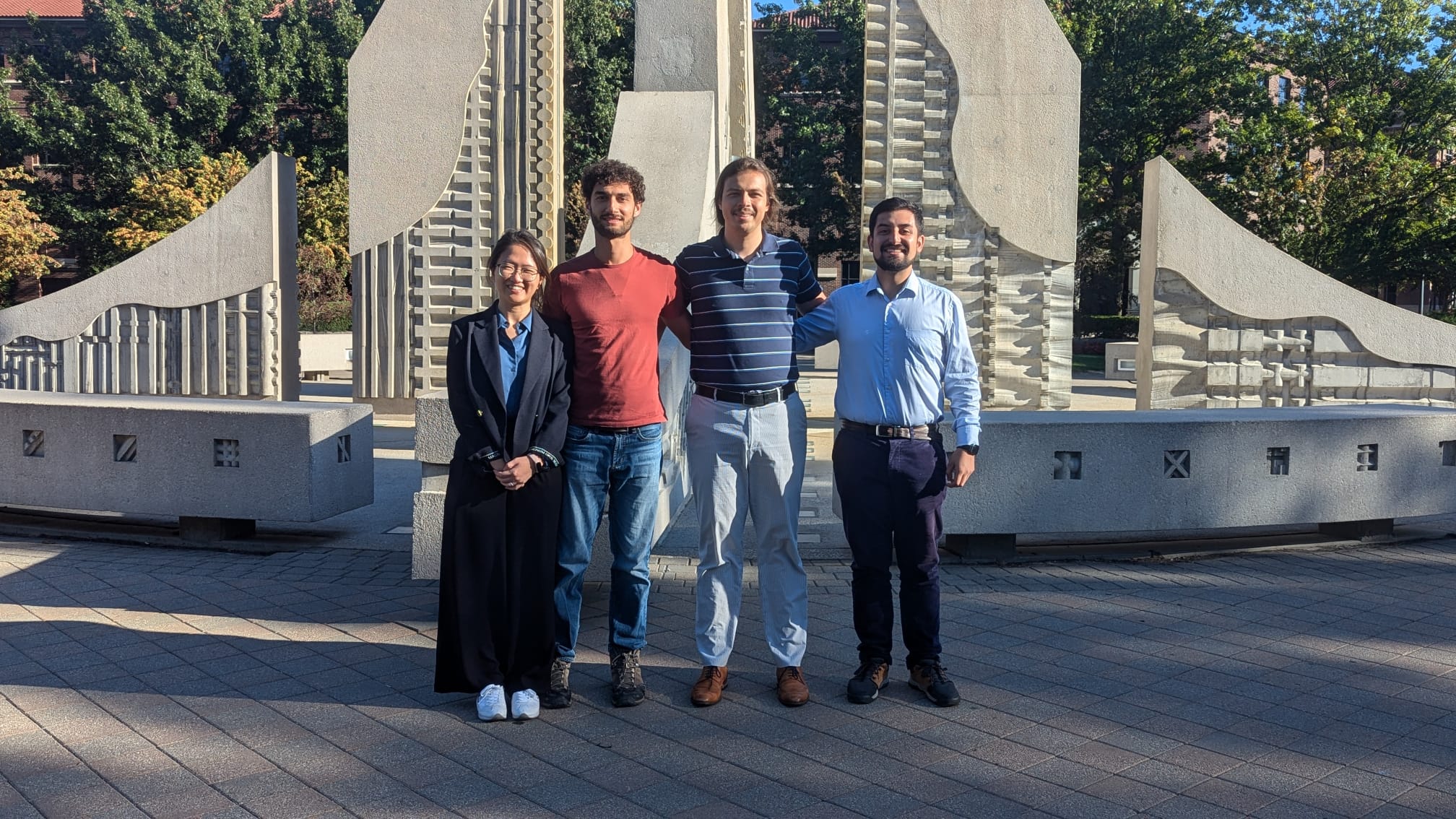David Bernal Neira and the SECQUOIA Group receive award in International Competition on Quantum Computing for Clinical Trial Optimization
David Bernal, Assistant Professor of Chemical Engineering, and his research group, Systems Engineering via Classical and Quantum Optimization for Industrial Applications (SECQUOIA), recently were awarded in the Clinical Trial Optimization Competition. This global competition is co-hosted by Aqora, a Paris-based software company specializing in solving real-world problems through quantum computing, and Ingenii, a New York-based firm focused on enabling machine learning scientists to tackle complex challenges using quantum computing at scale. In its inaugural year, the competition leveraged data from the Mayo Clinic and quantum computing to optimize clinical trials, aiming to reduce discrepancies between two provided datasets.
Bernal's team—comprised of Ph.D. candidate, Yirang Park; research scholar, Iago Leal de Freitas; Ph.D. student, Pedro Maciel Xavier; and undergraduate student, Benjamin Murray—competed against teams worldwide and secured a special prize among the top awards. During the awards ceremony, Prof. Bernal presented the team’s solution—a Python implementation of the Graver Augmented Multiseed Algorithm (GAMA) based on a hybrid approach between classical optimization and quantum computing. SECQUOIA’s approach proved to be among the top selected submissions and one that attracted particular attention from the audience as it used tools usually neglected by both quantum and classical optimization communities.

“This competition was particularly fun and energizing for us at SECQUOIA. We realized that some of the approaches that we had worked out, like an automatic reformulation of the problem using our QUBO.jl software, were insufficient. After some extra work, we were able to decompose the problem into a form that could be efficiently solved by classical algorithms and another one where quantum optimization proved to be very helpful, finding diverse new solutions," said Professor David Bernal. "Our method would have also used more quantum computing to come up with the improvement technique, but we were able to solve that part of the problem analytically. This only helped us in solving this critical problem with a hybrid quantum-classical algorithm.”
To watch the SECQUOIA group's research presentation, click here.
About SECQUOIA
The Systems Engineering via Classical and Quantum Optimization for Industrial Applications (SECQUOIA) research group at Purdue University focuses on solving complex optimization problems in science and engineering. The group specializes in designing and implementing optimization algorithms using hybrid and cutting-edge hardware technologies, including quantum computing, GPUs, and classical computing. Their research is particularly geared toward addressing challenging problems in chemical, process, and energy systems engineering.
